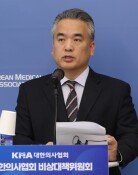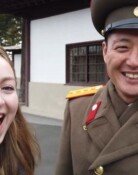President’s running mate
President’s running mate
Posted July. 16, 2016 07:26,
Updated July. 16, 2016 07:32
Sohn Ki-jung benefited a lot from second-place finisher Ernest Harper, as the Korean marathoner received the gold medal at the Berlin Olympics on August 9, 1936. When Sohn was running at excessive pace early in the race, Harper shouted and gestured at him “slow, save.” Sohn kept pace with Harper and managed a final spurt to win the medal. Fellow Korean Nam Sung-ryong, who was the third runner to cross the finish line, helped Sohn adjust pace as part of strategy, but Harper also effectively played the role of a "pacemaker behind scene" for Sohn.
In horse race, a running mate, which sounds similar to a pacemaker, refers to a horse that runs in the company of the frontrunner horse when the latter is engaged in exercise. As the running mate conducts training together with the best horse, the former is also quite strong in performance. It is not common for a running mate meant to support training to actually participate in a competition and win the title, but such a dramatic come-from-behind race often happens in human life. Hwang Young-jo, the gold medalist at the Barcelona Olympics in 1992, and Abel Kirui of Kenya, who won the title at the IAAF World Championship Daegu in 2011, are running mate-turned champions.
Donald Trump, the Republican standard bearer in the U.S. presidential race, picked Indiana Governor Mike Pence as his running mate and vice president candidate. Chances are high that Democratic candidate Hillary Clinton will pick Senator Tim Cane as her running mate. It is important that a running mate is armed with strengths that nicely make up for weaknesses of the partner. Notably, Governor Pence is a rationalist who criticizes that Trump’s anti-Muslim policy is ill-advised, and has maintained his marriage with his wife Karen for more than 30 years. He is different from Trump who unleashes irresponsible remarks and has married three times. Cane, a practicing Catholic, can be appealing to conservatives, the Achilles’ heel of Hillary.
Some argue that Korea should instate vice presidency if and when the country makes constitutional amendment. In the event of the president’s death or illness, it is more legitimate and justified for the vice president who has won trust from the public together with the president to inherit the presidency, than the prime minister. Even if it is not a running mate as vice president candidate, it is necessary to have an unofficial running mate who can supplement the president’s weaknesses. The most important quality would be the ability to convey public opinions to the president accurately without reservation. It would be great if such a figure can make up for President Park Geun-hye’s critical weaknesses by using rhetoric that does not displease the chief executive.







